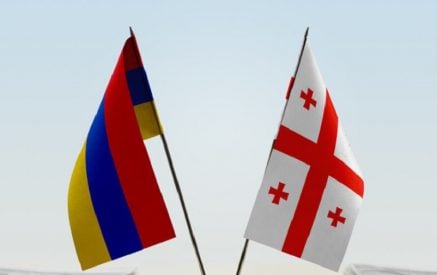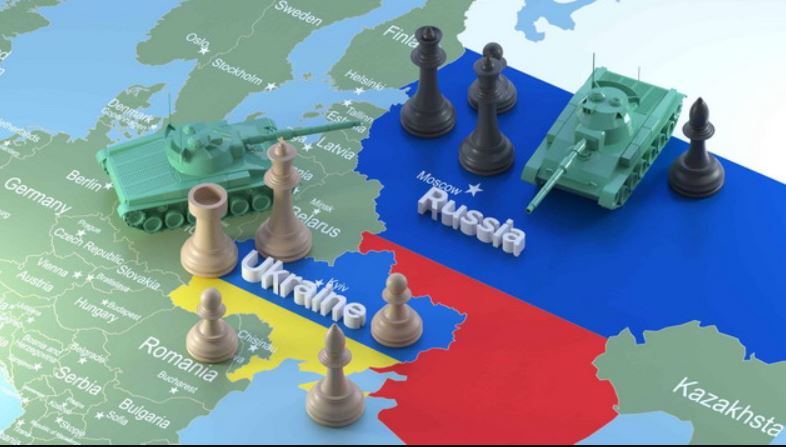“Historic regularities” are not the rules of physics
Exactly 12 years ago, on 2 November 2003, parliamentary elections were held in Georgia, which because a cause (or may be a reason) for the “rose revolution”. Prior to these elections, Georgia’s citizens’ discontent with the power of the then President of Georgia Eduard Shevardnadze was huge: economic dire situation, poverty, widespread corruption, high rate of crime … the central government was not controlling Abkhazia and South Ossetia, and had a weak control over Adzharia and a number of other regions.
A few months before the elections, young politicians Nino Burjanadze, Zurab Zhvania and Mikheil Saakashvili withdrew from the Shevardnadze-led “Union of Citizens of Georgia” and formed their opposition and pro-Western parties. During the campaign, it was clear that there will be widespread frauds, whole precincts were missing in the voter lists, on the other hand, the names of long ago passed away people were included. By the elections results, according to the official data, Shevardnadze’s “Union of Citizens of Georgia” and Adzharia leader Abashidze’s “Democratic Revival Union” won the maximum votes.
Read also
However, the opposition parties, NGOs and all international observers announced that they do not accept the results, which were followed by long-lasting protest demonstrations not only in Tbilisi but also in a number of other cities in Georgia. In the meantime, the organizers of the demonstrations were receiving obvious moral and material support from the West, primarily from the United States.
20 days after the elections, during the new convocation of the first sitting of the parliament, Saakashvili and his supporters broke through the police cordon and entered the parliament with the roses in hands, and at that moment, Shevardnadze who was delivering his speech had to leave the hall with his bodyguards.
The President of Georgia announced a state of emergency and ordered the army and the police troops to come to his residence. But the latter refused to execute the order. The next day, Russian Foreign Minister Igor Ivanov arrived in Tbilisi, and as a result of negotiations with the revolutionaries, Shevardnadze resigned.
These are the dry facts, the rest is my subjective assessment. The next year, on 4 January 2004, the biggest success of Saakashvili who had come to power was the fact that his party defeated in the parliamentary elections held on 1 October 2012… and peacefully left the power. Although in 12 years of Saakashvili’s tenure, Georgia, in my opinion, did not achieve special impressive successes in terms of economy, democracy and freedom of expression, however, this one achievement with its significance “covers” all the remaining issues. Saakashvili managed to overcome the corruption in the lower levels, restore the central government in Adjara and other regions in Georgia, with the exception for Abkhazia and South Ossetia.
In the latter case, in my opinion, the frantic attempt to return this territory to Georgia had sad consequences for our neighboring country. Again, I would avoid making direct parallels, because the revolutions or their attempts occur in the countries having various “benchmark date”, different revolutionary methods can be effective or ineffective in this-or-that country, the revolution consequences may be positive, negative or the combination of these two with different proportions. Thinking another way, it seems to me, means to believe in the theory officially adopted not in the far past. The representatives of the older generation were mandatorily passing a science at the universities, which was called a “historical materialism”.
The point if it was that there are clear “historical patterns” that are based on economic factors, production relations and, consequently, like in the rules of the physics, it is possible to accurately forecast the changes of the social system. Let’s say, in Haiti, Singapore, and South African republics, sooner or later, the production relations will develop in a way that the “proletariat” would begin fighting against “the bourgeoisie”, resulting in a revolution, and the “capitalism” will be substituted by “socialism”.
Today, naturally, no one believes in this theory. But the elements of the “historical materialism” are still present in our thinking. In particular, it seems to some people that the revolutionary attempt in Philippines, Myanmar, Serbia, Georgia, and Ukraine, as well as the “Arab Spring” is a universal “historical pattern”, which must mandatorily be repeated in all authoritarian states over the world. Actually, any attempt, including a revolutionary, is unique. Obviously, in the above cases, the political and economic consequences of “victorious revolution” were strongly different. As to what consequence this revolution will result if it wins in Armenia, only the modern descendants of “historical materialism” can tell it. It is not even possible to calculate which of the revolutionary methods will be effective in our country. An American researcher Gene Sharp mentions 198 methods of such fight. This does not mean, however, that our revolutionaries should open the book and try using all 198 methods.
Aram ABRAHAMYAN,
Aravot daily






















































